The young converts leading Catholicism's UK comeback
Gen Z and younger millennials drawn to 'clarity and certainty' in an age of 'perma-conflict'

A free daily email with the biggest news stories of the day – and the best features from TheWeek.com
You are now subscribed
Your newsletter sign-up was successful
The Catholic Church is experiencing a mini revival in Britain, driven by a new generation of converts.
While the average Briton is more likely than ever to be a non-believer, new research reveals that among Generation Z and younger millennials, Catholics now outnumber Anglicans by more than two to one.
'The Quiet Revival'
According to a YouGov survey of more than 13,000 people commissioned by the Bible Society, 41% of churchgoers aged 18 to 35 in England and Wales identify as Catholic, while 20% belonged to the Church of England and 18% identified as Pentecostal. The trend is particularly pronounced among young men. Overall, Catholics now make up 31% of all churchgoers, compared to 23% last time a similar survey was carried out in 2018.
The Week
Escape your echo chamber. Get the facts behind the news, plus analysis from multiple perspectives.

Sign up for The Week's Free Newsletters
From our morning news briefing to a weekly Good News Newsletter, get the best of The Week delivered directly to your inbox.
From our morning news briefing to a weekly Good News Newsletter, get the best of The Week delivered directly to your inbox.
Dr Rhiannon McAleer, co-author of the survey entitled "The Quiet Revival" , said these are "striking findings that completely reverse the widely held assumption that the Church in England and Wales is in terminal decline".
After decades of steadily dwindling congregations, the findings show that the number of young people aged 18-24 attending church has risen from just 4% in 2018 to 16% in 2024. Young adults are among those newly drawn to Christian beliefs, "with renewed interest not only in being part of a church but also in prayer, reading the Bible and social activism based on faith", said The Tablet.
Search for 'clarity and certainty'
"One reason for the increase in popularity of both Catholicism and Pentecostalism in England and Wales might be the growth of ethnic minorities," said The Tablet. It pointed out that "many migrants from countries such as Poland, Ukraine and South America are Catholic".
It is true that Catholicism "benefits from a steady stream of churchgoing immigrants to a much greater degree" than other major Christian churches, Stephen Bullivant, a professor of theology and the sociology of religion at St Mary's University, London, told The Times.
A free daily email with the biggest news stories of the day – and the best features from TheWeek.com
"But something else is happening too," said The Telegraph: "conversions". Young people are looking for "clarity and certainty", said Archbishop Mark O’Toole of Cardiff, and many of the Catholic-curious "have surfed the net" before finding answers in the Church. "They are not extremist or fundamentalist, but they have been looking for something and the words they use a lot about the Catholic Church is coherence and consistency."
For Gen Z, "the dawn of social media has heralded a new age of Christian influencers who preach to and convert their followers through the white light of a phone screen" instead of through "ornate cathedrals, Latin Mass and rigid orthodoxy", said Premier Christianity. "Just as their own parents raged against the machine, many Gen Z-ers are rejecting the looseness and moral flexibility of modern society."
Raised "against a backdrop of perma-conflict" and "an increasingly secular landscape, where conservative social values are shunned in favour of hyper-individualism and progressive political doctrine, it appears that traditional Catholicism has become a beacon of cultural defiance".
-
 Political cartoons for February 16
Political cartoons for February 16Cartoons Monday’s political cartoons include President's Day, a valentine from the Epstein files, and more
-
 Regent Hong Kong: a tranquil haven with a prime waterfront spot
Regent Hong Kong: a tranquil haven with a prime waterfront spotThe Week Recommends The trendy hotel recently underwent an extensive two-year revamp
-
 The problem with diagnosing profound autism
The problem with diagnosing profound autismThe Explainer Experts are reconsidering the idea of autism as a spectrum, which could impact diagnoses and policy making for the condition
-
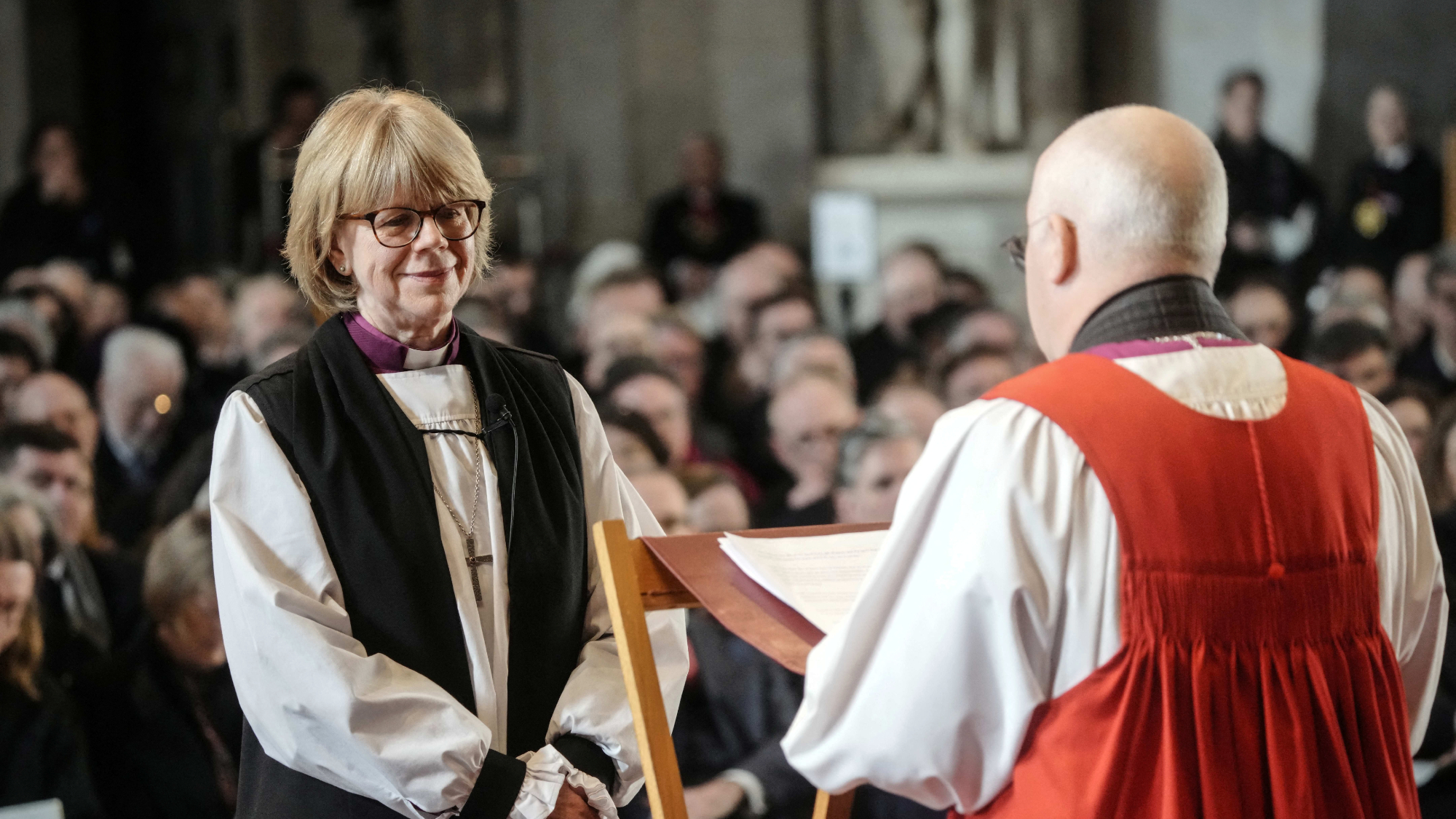 Church of England instates first woman leader
Church of England instates first woman leaderSpeed Read Sarah Mullally became the 106th Archbishop of Canterbury
-
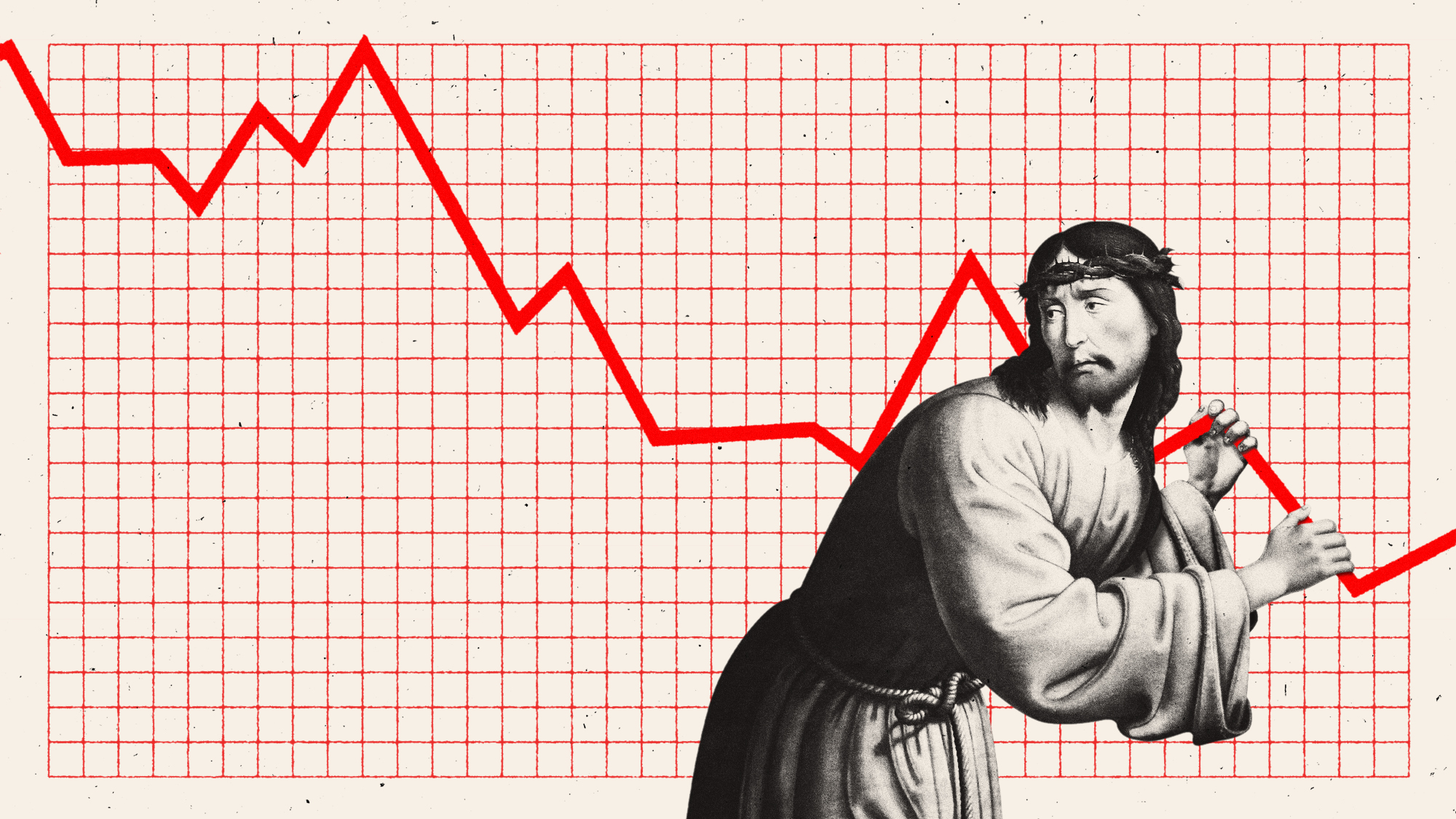 The UK’s supposed Christian revival
The UK’s supposed Christian revivalThe Explainer Research has shown that claims of increased church attendance, particularly among young people, ‘may be misleading’
-
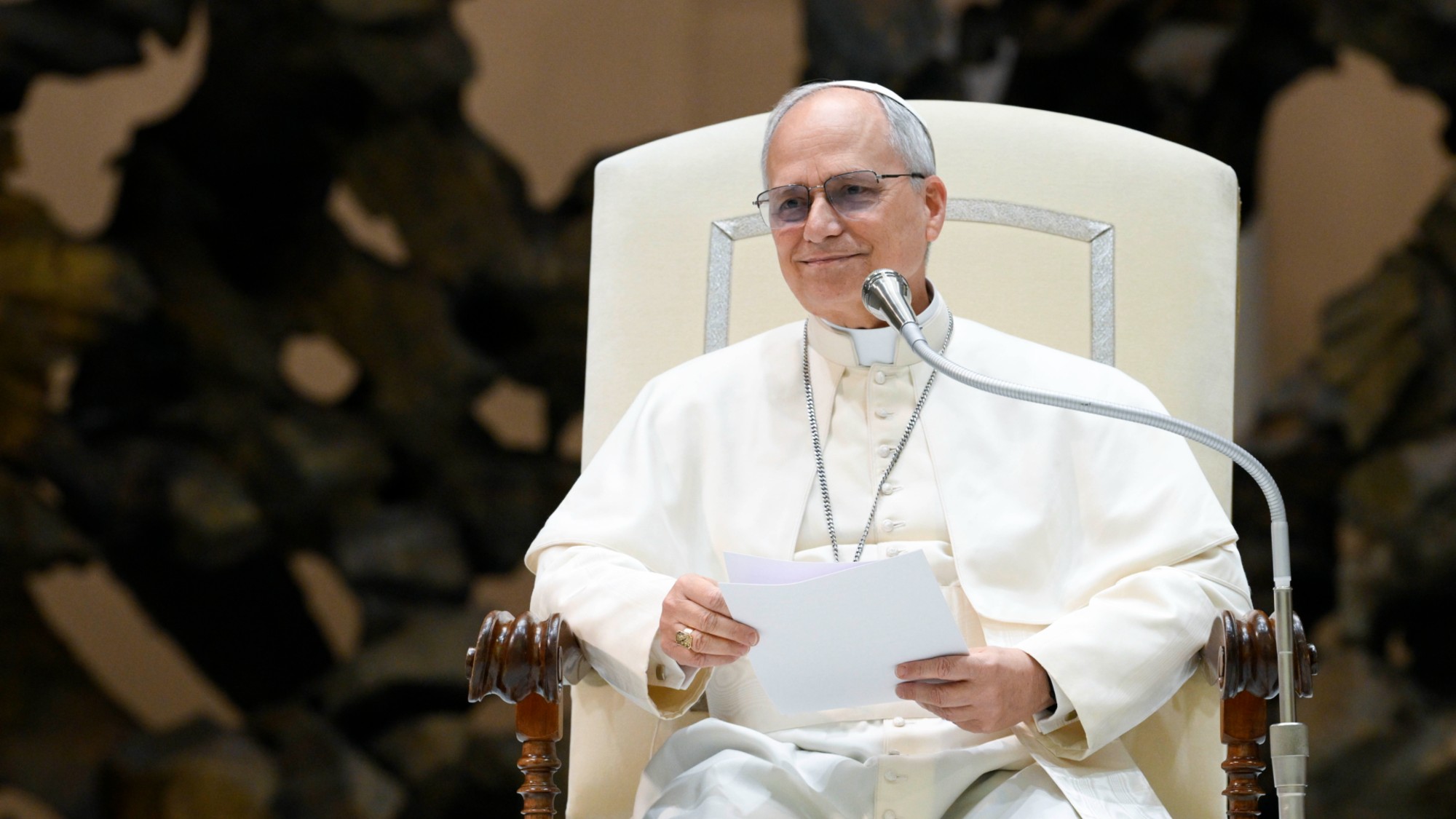 Where the new Pope Leo XIV stands on social issues
Where the new Pope Leo XIV stands on social issuesThe Explainer The first American pontiff is expected to continue some of his predecessor's work
-
 Leo XIV vs. Trump: what will first American Pope mean for US Catholics?
Leo XIV vs. Trump: what will first American Pope mean for US Catholics?Today's Big Question New pope has frequently criticised the president, especially on immigration policy, but is more socially conservative than his predecessor
-
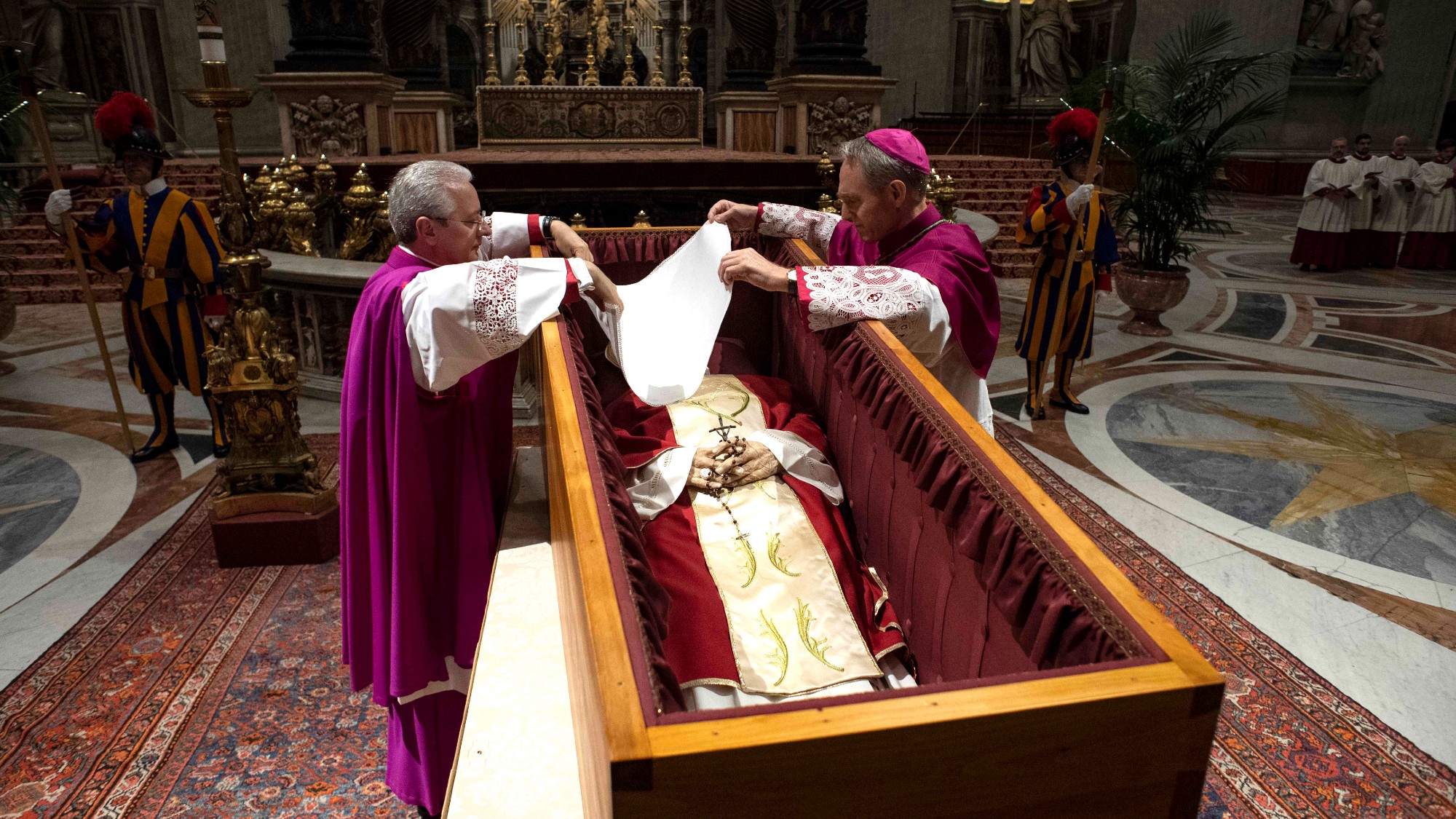 What happens when a pope dies?
What happens when a pope dies?In The Spotlight Vatican protocol on a pontiff's death is steeped in tradition and ritual
-
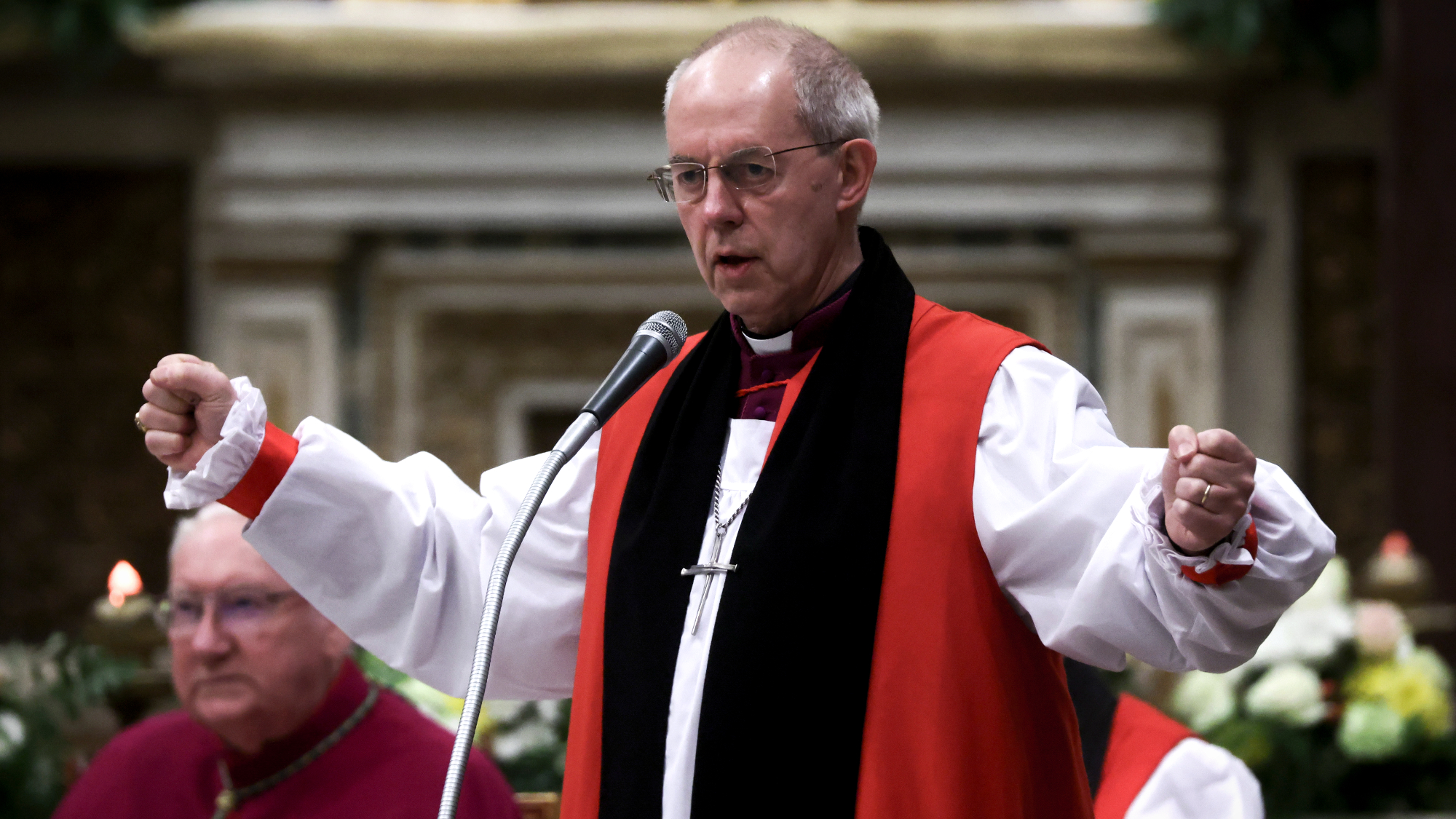 Church of England head resigns over abuse scandal
Church of England head resigns over abuse scandalSpeed Read Archbishop of Canterbury Justin Welby faced backlash over his handling of a notorious child abuser
-
 Why Justin Welby has stepped down as Archbishop of Canterbury
Why Justin Welby has stepped down as Archbishop of CanterburyIn the Spotlight 'Lack of curiosity' over claims of abuse of dozens of boys by Christian camp leader had made Welby's position untenable
-
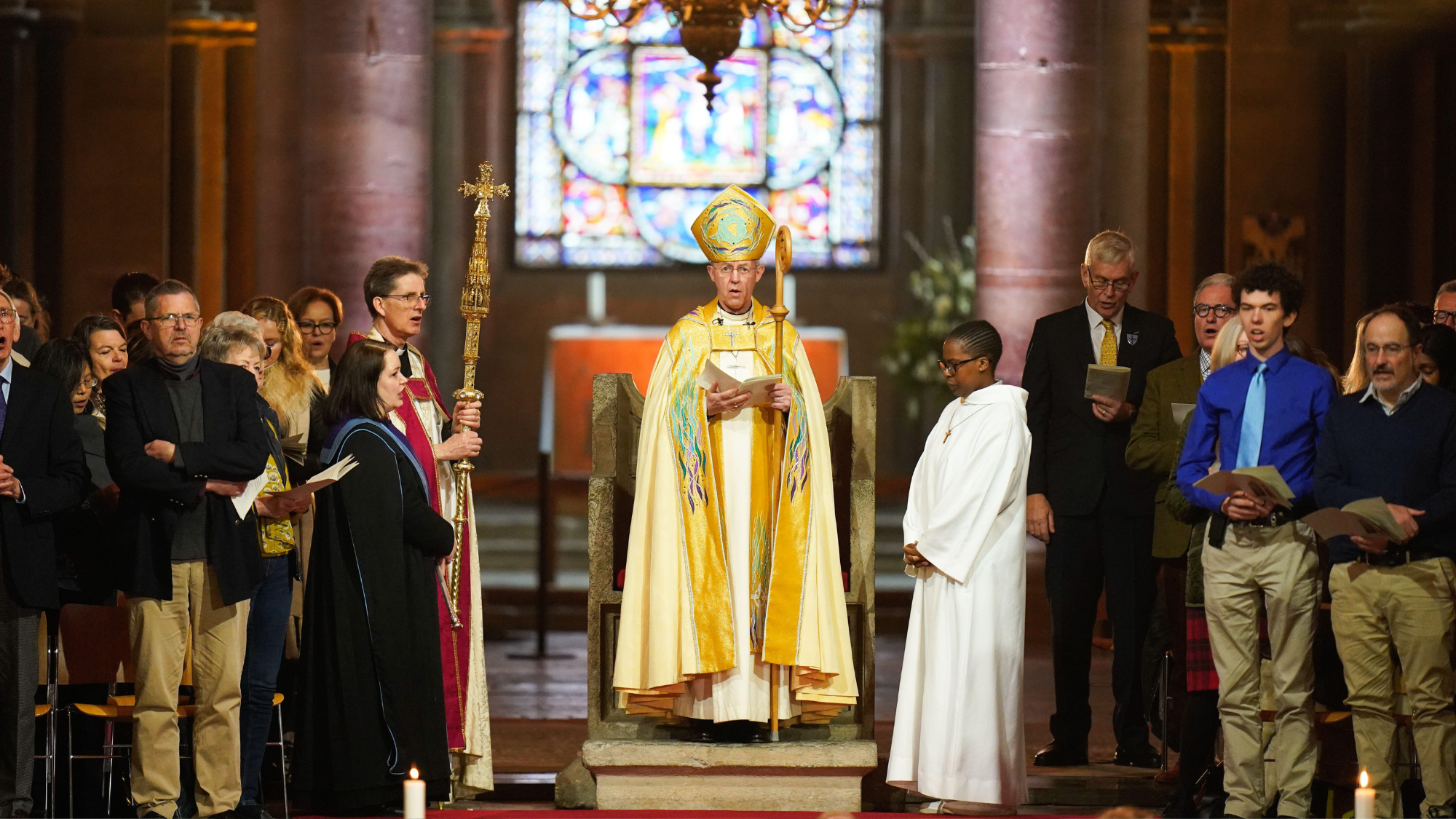 The Church of England's legacy of slavery
The Church of England's legacy of slaveryThe Explainer Should the CofE offer financial redress for its involvement in the transatlantic slave trade?